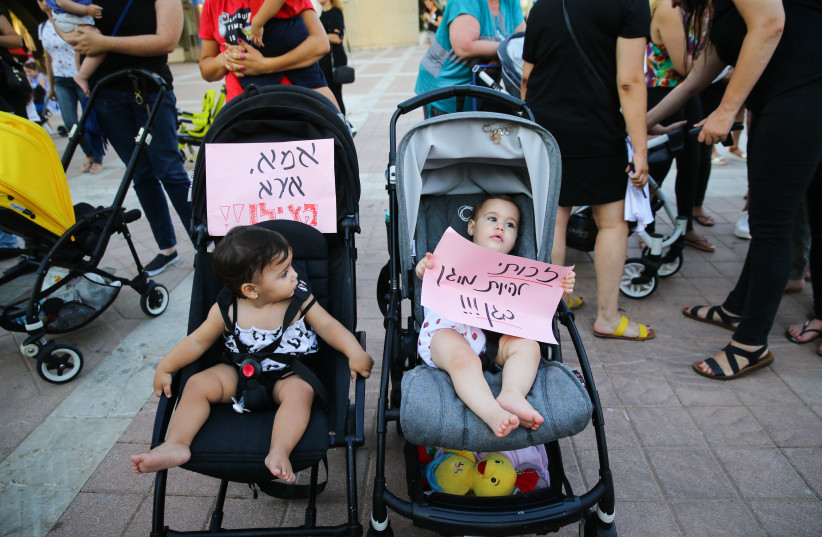The Education Ministry’s daycare reforms, including proper training for staff, legally-required licenses for daycare centers of seven children and over, and more extensive monitoring are greatly needed, the findings of the State Comptroller’s report confirmed on Tuesday.
The report found that monitoring of the daycares was insufficient and that daycare teachers were not undergoing proper training at the time of the review, which ended in November. Both these issues are now being addressed in the reforms that the Education Ministry introduced when it took over responsibility for daycares in January.
The comptroller report also found that the law requiring all daycares to be properly monitored and licensed only applies to kindergartens that look after at least seven children. Those same enforcement rules do not apply to smaller groups.
Despite acknowledging this problem, the State Comptroller did not include any recommendations on how to address it since the Education Ministry reforms will not apply to smaller daycares.
The report also found that there are not enough daycares available in low-income areas, nor is there ample funding for families in those areas. Further, the process to apply for such funding is extensive, cumbersome and largely inaccessible.

For those who do manage to apply, the report found that the committee that decides how much funding each family will receive is contracted to a third-party company, and at the time of the review there was no supervision of its work or its results.
In his review of education programs for older children, the Comptroller found that many aspects were also still not up to the expected standard.
The report stated that there was no proper support for children aged three to four who were being integrated into kindergartens and that while there had been an improvement since the last review, there were still large differences between the number of children aged three to five in kindergartens in Jewish and non-Jewish communities.
This can partly be attributed to another problem raised in the report, where there was a distinct lack of kindergartens in Arab communities.
For the Arab children who do attend kindergartens, the Comptroller found that there was no teaching program that was linguistically or culturally suited to them.
Another issue raised in the report was that the implementation of the New Horizon reform was still not satisfactory. The reform, adopted in 2008, aims to create systemic change within schools and kindergartens with four main goals: Improvement of conditions for teachers, including higher pay, equal opportunities for all students regardless of background, environmental improvement in schools and more responsibilities for principals.
The review found that while the reform’s annual budget is almost a billion shekels, there are still problems with its implementation, and not all its requirements are being met.
Lastly, the review found that the monitoring and support staff for kindergartens was still not at a satisfactory level. This includes educational advisers and psychologists being assigned to more kindergartens than they can deal with, not enough staff being hired in kindergartens and teachers’ assistants not undergoing the compulsory training of 270 hours.
